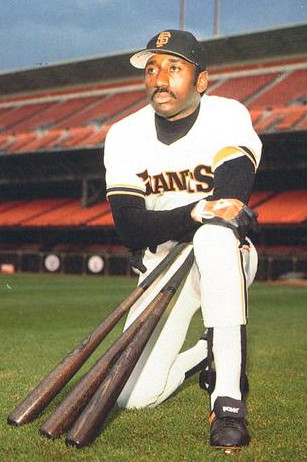Jeffrey Leonard: the misunderstood rebel who turned defiance into baseball folklore
When Jeffrey Leonard stepped into the batter’s box, he didn’t just play baseball — he performed it. His swing wasn’t textbook, his jog around the bases wasn’t humble, and his stare could cut through steel. They called him “HacMan.” They called him “Penitentiary Face.” And he turned both nicknames into armor.
In the 1980s, Leonard was one of those rare players who didn’t just compete — he dared you to watch. His iconic “one flap down” home run trot — where he’d keep one arm stiff at his side — became both celebration and provocation. Fans loved it. Opponents hated it. But everyone remembered it.
To understand Leonard is to understand contradiction. He was a player who looked mean but spoke softly, a man who never sought trouble but never backed away from it.
“He had that look,” one former teammate told The Athletic. “You’d see him in the on-deck circle and think, ‘Man, this dude’s about to do something crazy.’ And he usually did.”

Swagger that couldn’t be contained
Leonard’s career stretched from the Houston Astros to the San Francisco Giants, peaking in the late ’80s when he became the heartbeat — and sometimes the lightning rod — of the Giants’ clubhouse. In 1987, during the National League Championship Series against the Cardinals, Leonard was named NLCS MVP despite San Francisco losing the series. He hit four home runs, each punctuated by that infamous “one flap down” trot.
The Cardinals hated it. The fans booed it. The media obsessed over it. Leonard didn’t care.
“I don’t do it for them,” he told reporters at the time. “I do it for me.”
That defiance — raw, unapologetic — made him a polarizing figure in an era that wasn’t ready for individuality. Where others tried to fit in, Leonard stood out. And in a sport that often punished personality, he became a symbol of pride for players who refused to hide theirs.

“Penitentiary Face” and the power of perception
The nickname “Penitentiary Face” wasn’t meant kindly. It came from the way he carried himself — stoic, intimidating, no nonsense. But Leonard took the insult and made it myth.
“People thought I was angry,” he once said. “I wasn’t angry. I was focused. I played like every at-bat was my last — because, in this game, it could be.”
Behind that intensity was a player who loved deeply — his family, his teammates, and the fans who understood him. Teammates described him as fiercely loyal, protective, and quietly funny once the uniform came off.
“Off the field, HacMan was the guy who’d give you the shirt off his back,” said one former Giant. “But between the lines — forget it. You were in his world.”
A legacy written in attitude
Baseball has evolved, but Leonard’s influence can still be felt every time a player flips a bat, celebrates a homer, or plays the game unapologetically. Long before “swagger” became part of the sport’s lexicon, Leonard embodied it.
He didn’t just have a look — he had a presence. The kind that made fans whisper, opponents glare, and teammates grin.
Time has softened the edges of his reputation, turning controversy into legend. Today, Jeffrey Leonard isn’t remembered as a villain. He’s remembered as a pioneer — a man who dared to play baseball on his own terms and left the game a little more colorful than he found it.
Because in the end, the “HacMan” didn’t need approval. He had something better: legacy.
Leave a Reply